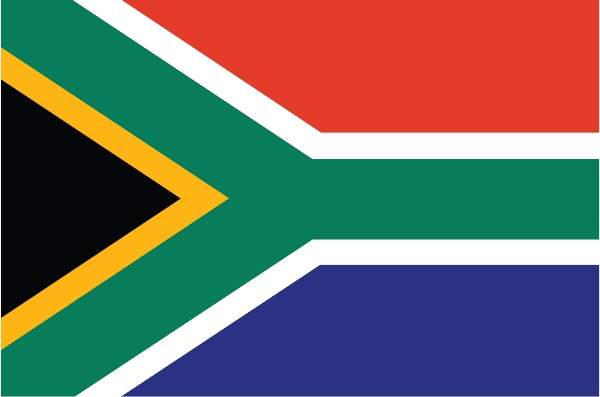
South Africa has over twice as many HNWIs as any other African country, and looking ahead the country’s wealth management market has strong fundamentals for growth. After good performance in 2017, when HNWI volumes in the country rose by 8% to reach 43,600, the number of South African HNWIs is forecast to grow solidly by 28%, to reach approximately 56,000 by 2027. Ronan McCaughey explains
South Africa’s wealth management market is well positioned for success because it is a potential hub to other African wealth management markets, it has one of the biggest stock exchanges in the world and a well-developed wealth management, fund management and banking system.
According to an AfrAsia Bank report published in 2018 by New World Wealth, the solid growth rate of HNWI 2017 volumes was in line with the rise in overall wealth held in the country.
Total private wealth held in South Africa rose from US$670bn at the end of 2016 to US$722bn at the end of 2017, whilst HNWI wealth rose from US$284bn to US$306bn.
The rise was facilitated by a strengthening local currency – the US$ exchange rate went from R13.70/US$ at the end of 2016 to R12.30/US$ at the end of 2017. The JSE all share index was also up significantly during the year (by 30% in US$ terms).
Solid HNWI growth is expected over the next 10 years. The number of South African HNWIs is forecast to grow by 28%, to reach approximately 56,000 by 2027.
How well do you really know your competitors?
Access the most comprehensive Company Profiles on the market, powered by GlobalData. Save hours of research. Gain competitive edge.

Thank you!
Your download email will arrive shortly
Not ready to buy yet? Download a free sample
We are confident about the unique quality of our Company Profiles. However, we want you to make the most beneficial decision for your business, so we offer a free sample that you can download by submitting the below form
By GlobalDataDespite being only the fifth-largest country in Africa in terms of population and ninth-largest by land area, South Africa is by far the most advanced and richest country on the continent.
South Africa has over twice as many millionaires (HNWIs) as any other African country.
Things that attract HNWIs to South Africa
The AfrAsia Bank report notes things that attract and keep HNWIs in SA include:
- Lifestyle aspects: wildlife, beaches, weather and scenery.
- A good private healthcare system.
- Top class private schools for their children.
- Top class shopping centers (examples: Sandton City, Gateway, Montecasino, V&A and Hyde Park).
- English speaking country.
- Fully developed luxury market, where most of the major luxury brands are available.
- Large number of luxury holiday destinations within country (examples: Kruger Park, Cape Town, Umhlanga, Ballito, etc.).
South Africa investment style preferences
Over half of South Africa’s HNW wealth is held in discretionary mandates, according to GlobalData Financial Services. In fact, only a small proportion of investors in South Africa self-direct.
This is good news for wealth managers, as discretionary mandates attract a more loyal customer base and yield higher fee income.
GlobalData believes there is a significant opportunity to be had in South Africa, as 21.5% of HNW investors do not place their assets with a wealth manager.
Advisers should reach out to that segment by marketing the added value and time-saving advantage of placing investment decisions in the hands of a professional.
South African HNW investors rely more on their main wealth manager than their global peers, placing an average of 72.9% of their wealth with their main wealth manager.
Meanwhile, in the majority of cases HNW individuals use two to three companies.
To stand out from the crowd providers should differentiate themselves by offering a wide range of product and services, spanning vanilla products such as funds, real estate investment trusts (REITs), and fixed-income products to more sophisticated investments such as private equity investments and products that provide exposure to foreign markets.
Nearly 70% of the industry participants GlobalData interviewed forecast an increase in demand for advisory mandates.
Data collected from the GlobalData 2016 Global Wealth Managers Survey shows that South African HNW clients’ lack of expertise is the main reason driving advisory mandate uptake.
Meanwhile, 50% of wealth managers believe demand for automated investment services will increase over the next two years.
Digital tools
This shows that there is a segment of the HNW market keen to use digital tools to manage their wealth, which is reflective of the general global trend.
To avoid losing market share to standalone robo-advisers, wealth managers should include such platforms as part of their digital service proposition in order to simplify the day-to-day management of clients’ assets.
A total of 26.4% of wealth managers believe self-directing clients invest a proportion of wealth independently because they want to avoid management fees, suggesting that a transparent cost structure is critical to avoid losing clients to execution-only providers.
Retaining exclusive control of some of their portfolio is an additional driver for clients to self-direct. In fact, with strong growth in demand for digital platforms, there is the potential for these tools to play a greater role in helping clients manage a small part of their wealth at a lower cost and on an independent level.
Wealth managers will have to come up with alternative services to accommodate the needs of these more digitally savvy clients.
Speaking to PBI, Cumesh Moodliar, head of Investec Private Bank (SA), explains how the provider uses technology.
Moodliar says: “Investec Digital (Investec Online and the App) provides our clients with a platform to get a real-time consolidated view of their banking and investment accounts, locally and internationally, on one platform with one login.
“Through this dashboard, clients can access and transact on their banking and investment accounts across South Africa, the UK, Channel Islands and more, at no additional fees.”
Stephen Silcock, investment manager at Investec Wealth & Investment, adds: “Also part of the Investec Digital platform is My Investments – essentially a robo-adviser offering a suite of both offshore and local investments, as well as unit trusts and segregated portfolios, either on an assisted or self-directed basis.
“This is appealing to millennials, individuals new to investing, and for succession planning in families. My Investments is an excellent starting point in the journey of building wealth.”
Shaun Kotwal, head of wealth management in South Africa for Standard Bank Wealth and Investment, says the bank has developed many digital solutions to improve its wealth management services and continues to test and work on new ways to stay a step ahead.
He says: “Our ‘Shyft’ app enables the individual to buy, send and spend foreign currency anywhere in the world from the convenience of their mobile device, while our Online Share Trading companion app is fully integrated with web-trader to allow trades in 29 other countries’ stock markets.
“AlwaysOn, meanwhile, gives clients immediate 24×7 real-time access to a banker wherever they are, and it gives them a better way to respond swiftly and personally to client needs.”
Looking ahead Kotwal notes that the ultra-wealthy in Africa are also increasingly interested in leaving a legacy and providing more for society at large through philanthropic activities.
He says: “Wealth management is a far broader concept today than it ever was, with philanthropy set to grow in popularity across Africa.
“The new frontier of philanthropy will be via social impact investing that moves away from mere handouts to building sustainable social enterprises.
“We expect to see impact investing that creates measurable social returns increase across Africa in the near future.”
Asset allocation trends
South African HNW portfolios are heavily invested in equities, leaving little space for investments in other asset classes.
Cash is the second most popular asset class, whereas allocations in bonds, property, and alternatives are almost equal. Commodities only account for a small proportion of HNW investments.
Going forward, we expect cash, property, and alternatives to experience strong increases over the next 12 months.
HNW investors in South Africa are significantly exposed to equity risk, and any index movement will have a significant effect on portfolio value, making a diversified strategy key.
Indeed, compared to HNW individuals globally the proportion of wealth held in equities is much larger in South Africa. Investors appear to be confident in the performance of stock markets, and this approach has paid off.
South African investors hold 11.5% of their portfolio in alternative investments, which is higher than the global average of nearly 8%. Alternative investments are overwhelmingly held in funds, which account for 87.6%.
Investments in alternatives are biased towards hedge funds with almost 68% of allocations. The South African hedge fund industry has gone through comprehensive regulatory changes in recent years, gaining in transparency and therefore boosting client confidence.
GlobalData shows HNW investors are forecast to increase their allocations in alternatives because they are looking to diversify their portfolios.
Pension planning services demand
South African wealth managers experience strong demand for pension planning, while demand for tax planning is weakest.
However, wealth managers anticipate that demand for the latter will pick up, albeit at a slower pace than for the other planning services. Overall, an increase in demand is expected for all planning services, with pension and financial planning set to be the top performers.
A total of 99.1% of wealth managers experience strong demand for pension planning services.
While the South African government offers an old-age pension, this is clearly nowhere near the standard expected by the country’s demanding HNW client base, and most individuals seek alternative ways to prepare for their retirement.
In addition, the notable proportion of British nationals among the HNW expat client base contributes to the high demand for pension planning advice, due to the complexity of their finances.
Inheritance planning services are also very prominent, as South Africa imposes an inheritance tax, as well as a donations tax, at a rate of 20% on the worldwide net estate. However, some deductions are in place, and wealth managers are needed to help clients maximize the cost efficiency of the inheritance.
Commenting on the outlook for private banking and wealth management in South Africa, Alexandra Nortier, joint head of wealth management at Investec Wealth & Investment, says: “The modern private client, we believe, increasingly sees him or herself as a global citizen, with investments and banking capabilities that reflect this outlook.
“Our presence and expertise in South Africa, the UK, Ireland, Switzerland, Hong Kong, Mauritius and elsewhere means we are the right partner to continue servicing these clients.”
Success factors for South Africa
Overall, the critical factors for success in the South African wealth management market include
- Tailoring services to the professional client base
- Targeting the expat population
- Diversifying the planning services offering
Tailor services to the professional client base: Almost half of South African HNW investors accumulated their wealth through earned income – a considerably larger proportion than the global average. Wealth managers will do well to provide services tailored to the lifestyles and investment goals of their professional client base.
Toby Gauvain, president of Ten Lifestyle Group, says: “We have already seen increasing interest from private banks and wealth managers in South Africa demonstrating a willingness to invest in more customer-focused propositions, which can only be seen as a positive sign for the industry.”
Target the expat population: Despite being lower than the global average, expats constitute a notable proportion of South African HNW residents. Solutions such as offshore bookings services in the UK will prove to be successful, since British expats constitute nearly two thirds of South African HNW expats.
Diversify your planning services offering: Demand is very strong for all planning services and is forecast to grow even further. Advisors will do well to develop a broad service offering able to meet diversified planning demands.
Fast facts
- Total private wealth held in South Africa amounts to approximately US$722bn. Around US$306bn of this is held by HNWIs
- The average South African individual has net assets of US$12,900 (wealth per capita), which is the 2nd highest level in Africa, behind Mauritius
- SA is home to 43,600 HNWIs, each with net assets of US$1m or more
- SA is home to 2,200 multimillionaires, each with net assets of US$10m or more
- SA is home to 5 billionaires, each with net assets of US$1bn or more







